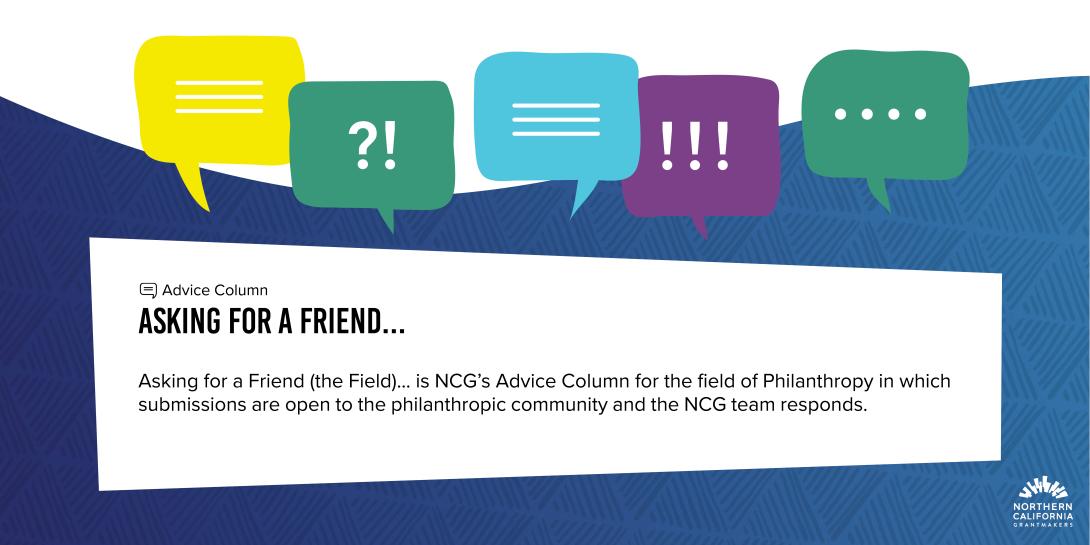Asking for a Friend… As a person of color in leadership, how do I deal with microaggressions from white staff?

Want to join the conversation? Submit your question below! While we can't get to every question, the NCG team will work to respond to questions as we're able.
Conundrum
As a person of color leading a foundation, how do I deal with white staff who are demanding progress on DEI while simultaneously disrespecting, microaggressing, etc?
Columnist
This week's column was written by NCG's very own Board Chair Janet Y. Spears. Thank you Janet for sharing your wisdom with the field!
Advice
Dear fellow CEO,
I am excited to answer this question and share my Black Woman Wisdom (BWW). To make my point in 350 words or less, here are my thoughts on dealing with white staff to micro-aggressiveness in general and within the context of DEI.
Organizations should work to build a trusting and belonging environment. They should be emotionally mature enough to handle information and feedback. There must be an environment where individual actions will aid in creating a multiracial democracy. Not just within the framework of an organization’s efforts toward trust-based philanthropy, but also with a focus on building trust-based relationships.
Accomplishing this would create an organization where the team could share their truth without judgement. If there is a microaggression towards someone, they can speak up without fear and demonstrate that a person of color’s experience is just as valid as the dominant culture’s experience.
Being called out for microaggression is uncomfortable and most people will say it was not their intention. However, intent doesn’t always align with the impact. The impact should be centered no matter the intention. This misalignment doesn’t mean that microaggression is overlooked, instead, the impacted person should be able to share their experience while the other listens to receive feedback without responding. An example of this interaction could be: let the person share their experience without speaking in response, don’t react in a way that suggests it’s their problem or they’re too sensitive and avoid getting defensive. Go inward, take it in, try to understand the “why” of that person’s feelings.
We’ve been acculturated in a world of white supremacy resulting in a false construct of race. The belief espouses that white is right/superior and anything not white is wrong/inferior. This was made apparent to me when I look back on song lyrics or watch old TV shows from the 60’s and 70’s. Short people? Cherokee people? All in the Family? The Jeffersons? We said, heard, watched, and sang some incredibly offensive things!
So, please tell your organization that real DEI and belonging happen when every person can bring their full selves and brilliance to the work they choose to do.
To put it succinctly …you are not responsible for managing the emotions of white people. It is the collective responsibility to co-create trusting relationships that can withstand feedback and grow together.






